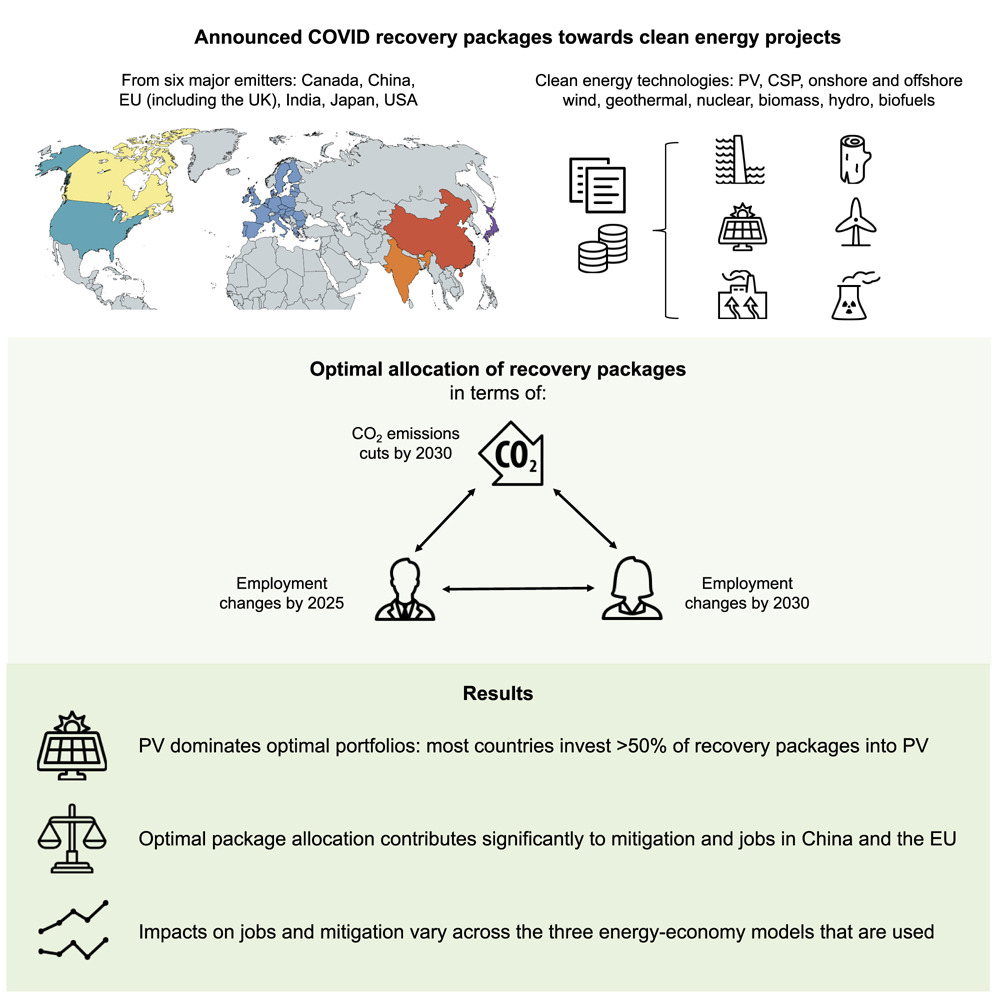Elsevier,
Hygiene and Environmental Health Advances, Volume 3, September 2022
The research supports Sustainable Development Goal 3 (SDG 3) by identifying factors affecting public health, such as indoor airflow patterns and outdoor temperatures, and providing recommendations for epidemic prevention and control measures.
Elsevier,
One Earth, Volume 5, Issue 9, 16 September 2022, Pages 1042-1054
This article supports SDGs 8, 7, and 13 by incorporating investment portfolio analysis into three different energy-economy models to examine the climate employment co-benefits of green recovery packages in six major emitting regions.
Elsevier,
The Journal of Climate Change and Health, Volume 8, October 2022, 100145
Children with special healthcare needs (CSHCN) are particularly susceptible to extreme weather events. The aim of this study is to contribute to the limited body of literature related to the climate crisis and CSHCN, and to summarize possible ways to improve the disaster preparedness of families of CSHCN.
Elsevier, Food Quality and Preference, Volume 100, September 2022
Edible macroalgae (i.e., ‘seaweeds’) are a nutritious and sustainable alternative to animal-based proteins. However, consumption of seaweeds in Western countries remains low, and little is known about individual drivers of acceptance. The aim of this study was to further explore the consumer acceptability of seaweed-based food products in the UK. In an online study (N = 476), participants were presented with a general description of edible seaweeds, and descriptions of seaweed-based food products (e.g., ‘seaweed burger’).
Elsevier,
The Journal of Climate Change and Health,
Volume 8,
2022,
100166
This scoping review assesses the state of peer-reviewed literature on the health risks associated with climate change in the 21 Pacific Island states, analyzing quantitative and qualitative studies focusing explicitly on health outcomes, as well as studies focusing on health determinants or potential mediators along the climate-health pathway.

